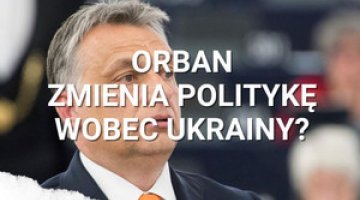Analyses
Hungary: The state to have a greater stake in MOL
Prime Minister Viktor Orbán announced on 24 May that Hungary had struck a deal with the Russian company Surgutneftegas on the buyback of a 21.2% block of shares in the oil and gas company MOL. As a result, the Hungarian state will become the largest stakeholder in MOL. This deal is the culmination of efforts the Hungarian government and the management of MOL have been making for many years to prevent the company from falling under the control of entities they deemed unwelcome. In the opinion of the Hungarian government, MOL is a strategic company, of key significance for the country’s energy security. The buyback of its shares also fits with the government’s vision of a state regaining its influence and playing an increasing role in the economy.
The change of the ownership structure is unlikely to bring about any major modification of the company’s development strategy. The actions taken to prevent MOL from falling under the control of Russia’s Surgutneftegas – and earlier of Austria’s OMV – gave rise to a number of solutions which make it difficult for one shareholder to take control of MOL. Moreover, the government has supported the company’s development vision without any major reservations so far. One may expect that MOL’s strategy will be only slightly modified, to include greater engagement in the development of gas infrastructure or to establish closer co-operation on the domestic market with the state-controlled electric energy corporation, MVM. The main guidelines of the company’s policy abroad, namely reinforcing the alliance with the Croatian fuel company, INA, and efforts to expand the still small upstream portfolio will remain in force. It cannot be ruled out that now that MOL is controlled by the government to a greater extent, it will be more interested in acquisitions in the region.
The conditions and the unclear background of the deal
According to the Hungarian side’s declarations, the 21.2% block of MOL shares will be bought for 1.88 billion euros. This more or less corresponds to the market price of the company’s shares. The deal is to be finalised by the end of August. It is still unclear whether MOL shares will be taken over by a state-controlled entity – either MVM corporation or the Hungarian Development Bank – or by the state treasury. Budapest is to finance the purchase of the shares from a loan from the International Monetary Fund, which has not been used in full. This way the Hungarian government does not need to obtain additional funds for this costly operation (the value of the MOL shares to be taken over reaches almost 2% of Hungary’s GDP).
This deal is also financially beneficial for the Russian company. Surgutneftegas bought the block of MOL shares from OMV in March 2009 for 1.4 billion euros; so its return on the invested capital will reach almost 35%. However, this is not a decisive factor from the point of view of the implementation of the Russian oil sector’s strategy. The decision to sell the shares was made first of all as a consequence of the Hungarian government’s effective measures preventing the Russian company from participation in the Hungarian company’s management, and possibly also as a result of other concessions offered to Russia. Viktor Orbán’s cabinet was negotiating the buyback of MOL shares primarily with the Russian government, and not with Surgutneftegas. This has given rise to many questions about political conditioning of the deal, even more so since the Hungarian side expressed its readiness to buy MOL shares in October 2010 as part of a ‘package’ agreement with Russia. Therefore, it cannot be ruled out that now that Russia has consented to sell the shares in MOL, the Hungarian government will be more favourably disposed for example to the participation of Russian companies in the planned development of the nuclear power plant in Paks, implementation of the South Stream gas pipeline or admitting Gazprom to the direct sale of natural gas in Hungary.
The effective defence strategy
The buyback of MOL shares by the Hungarian state proves the effectiveness of the strategy for defending the company from takeovers by foreign companies. This strategy envisaged the forging of strategic alliances (for example, with the Czech energy company, ČEZ) and ‘parking’ shares in companies which do not operate directly on the fuel market (see Appendix). These solutions have enabled the preservation of the company’s ownership structure and increased its capitalisation, thus reducing the risk of hostile takeovers.
However, the key moves were the amendment of national legislation concerning strategic companies (known as Lex MOL) in 2007 and the changes in MOL’s articles of association introduced in 2009. These were made as a direct response to OMV’s attempts to increase its stake in MOL and later – since the Austrian company’s attempts proved unsuccessful – to the purchase of MOL shares by Surgutneftegas. The law for example introduced a rule according to which the dismissal of members of the management of strategic companies requires consent from 75% of shareholders, and granted more powers to the national financial supervision authority (PSzÁF) in the process of merger approval. In turn, the changes in the articles of association required the ownership structure of shareholders to be revealed, which automatically eliminated Surgutneftegas as a rightful shareholder.
A governmental agenda for MOL?
By the end of August 2011, the Hungarian state will hold in total almost 25% of the shares in MOL. In addition to the block of shares owned by the Hungarian Development Bank and the stake bought back from the Russian company, the state will also take over around 2.5% of the shares owned by private pension funds. However, formally this will not contribute to an increase in the state’s interference in the company’s management since each of the shareholders may use the right of vote at the maximum level of 10% of the shares. Apart from this, Orbán’s government has accepted the company’s strategy so far. It envisages a continuation of the alliance with Croatia’s INA, upstream investments and ‘organic growth’, which means drawing upon assets owned so far (instead of going into mergers and large acquisitions). However, at the same time, representatives of MOL have unofficially hinted that they are interested in buying a controlling stake in the Polish fuel company, Lotos.
The area in which some differences between MOL’s activity and the government’s goals appear is the gas sector. Since this sector offers very low profits, MOL has withdrawn from natural gas distribution in Hungary almost completely. The building of the North-South corridor is a top priority task in the government’s energy policy. For this reason Orbán’s cabinet may make efforts to activate MOL in the gas sector.
The buyback of the company’s shares from Russians has been accompanied by the Hungarian government’s promises to increase the state’s share in the energy sector and to take more active measures to ensure energy security. This fits in with the policy of the governing party, Fidesz, which wants the state to play a greater role in the economy. This policy has been made manifest through the transfer to the state money from private pension funds and the imposition of heavier taxes on the financial, energy and telecommunication sectors due to a tough budget situation. However, at present it would be rather unrealistic for the government to be able to successfully consolidate the energy sector around one large, state-controlled company. The budget funds Budapest has are too limited to enable further acquisitions, and private firms are not interested in selling companies. However, it cannot be ruled out that closer co-operation in the electric energy sector will be established between MOL and the state-controlled company MVM, which has a dominant position in the sector of electric energy production in Hungary.
Appendix
MOL shareholding structure as is known at present (in %)
Surgutneftegas – 21.2
Bank OTP* – 8.3
ČEZ – 7.3
Oman Oil Company – 7.0
Magnolia Finance* – 5.7
MOL and shares owned by the company’s employees and management – 5.2
ING* – 5.0
Crescent Petroleum* – 3.0
Dana Gas* – 3.0
Unicredit – 2.8
Hungarian Development Bank – 1.2
BNP* – 0.03
Free trade – 30.2
* as part of share parking schemes of co-operation between companies




